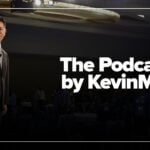When I was unemployed, I applied for countless positions. For months, I have been waiting for a call letter regarding a test or an interview. Now that I have accepted a job at a hospital located far away, I receive call letters in the mail almost every day. This makes me uncomfortable because I know that, being new in my position, I cannot take time off for any test or an interview. As a result, I continue to filter out these options.
But, this one job was a great opportunity, and I didn’t want to miss this test, so I took a day off. The test was scheduled for 8 a.m., and it was specifically mentioned that candidates should arrive at least 15 minutes early. Unfortunately, I didn’t get a good night’s sleep and could only manage about four hours of rest, which made it extremely difficult for me to wake up. Additionally, I struggled to find a ride to the test center. I didn’t have time for breakfast and managed to grab a cup of tea in the limited time I had.
I had difficulty finding a taxi, and when I finally got one, the driver took the wrong route. I was already short on time, but I tried to stay calm and guide him, even though it took longer than usual to reach my destination. When we arrived, he didn’t have any change, but it didn’t matter; I just wanted to get there on time.
After arriving at the venue and locating the auditorium, I walked into the hall and recognized many familiar faces. It turned out that the exam hall wasn’t limited to candidates from just my specialty; it included doctors from various other specialties as well. Suddenly, I heard someone calling my name. When I turned to look, I saw my best friend from medical school. She is now a radiologist, married, and a mother to a four-year-old. (She has always been quite anxious, a perfectionist, an overthinker, and a high achiever — essentially the perfect recipe for disaster.) She was thrilled to see me, as this encounter was unexpected. I waved at her, signaling that I would catch up with her later.
When I found my seat and finally settled in, I began drinking some water. The candidate sitting next to me started talking; she was from my specialty. After waiting for half an hour, the other candidates became restless, as there was no sign of the exam starting. We were informed that we would need to wait an additional 20 minutes due to a technical glitch, and the examiners and invigilators had not yet arrived. Many candidates began to argue and complain, stating they had other commitments to attend to. The only response we received was that those who could not wait were welcome to leave.
The candidate sitting beside me began talking since there was nothing else to do. To be honest, I just wanted to rest my head for a while, but I engaged in the conversation to avoid seeming impolite. She shared that she had passed her specialization exams and was now planning her next steps. She had also passed one or two foreign exams and seemed to be a very ambitious person. As we talked, we discovered that we had many mutual friends, and soon our conversation turned to who was working where, who had gotten married, and how much everyone was earning. Eventually, she asked about my plans, along with a flood of advice that often comes with those kinds of questions.
When the exam began, it was quite gruelling and lengthy, lasting nearly three to four hours, quite longer than expected. I experienced hunger pangs and soon felt the urge to use the restroom, but I pushed through and completed the exam.
Afterward, my friend from medical school found me. We planned to go out for lunch. It was a very hot day. When we arrived at the parking lot, we discovered that her car had been hit by another vehicle. The rear of the car was damaged, and this triggered her panic and anxiety. She immediately took pictures of the damage and sent them to her husband to inform him. However, she was more concerned about his reactions — as well as those of her in-laws — since they had placed an advertisement to sell the car. Her worry about how they would react overshadowed her concern for the damage. Given her already anxious state, I didn’t want to add to her stress, so I tried my best to calm her down and considered leaving on my own. But she insisted on having lunch with me, since we hadn’t seen each other in months.
We had lunch together, and she had a lot on her mind. She shared her frustrations about parenting, unemployment, her in-laws, and the issues in her marriage. She talked about the pressure to achieve and earn more, constantly comparing herself to her peers. One of her biggest concerns was how much weight she had gained, along with her persistent backache and aching knees. It was clear she had so many stories to tell, even though she was worried about her daughter at home.
I was starting to feel a headache come on, likely due to fatigue from the exam and the heat that day. To avoid it turning into a more serious migraine, I took some medication right after lunch. After our meal, we parted ways. Although she offered to drive me, I knew she was short on time.
After saying goodbye, I focused on completing two more tasks I had planned for the day, as I wanted to make the most of it. Since I only have Sundays off, I needed to visit two offices that I can’t go to during the weekdays due to my work hours.
I was sitting at the bank, waiting for my turn, when I received an audio message from HR requesting an explanation for my absence. The doctor who was supposed to cover for me was also unavailable. On that day, the number of patients was higher than usual, and the hospital administration was concerned about the issues my absence had caused. I felt sad, as this was my first leave of absence, and it wasn’t for relaxation. I had genuine reasons for my time off. I was particularly worried about the patients since managing oncology cases is not an easy task for any doctor who isn’t specifically trained in that area.
I apologized to the HR and informed them that I would discuss everything in detail the next day. By that time, my headache was increasing in intensity. Later, I had to go to another office to collect a certificate. When I finally got home, it was nearly 5 p.m. My head was pounding, and I simply placed a cold pack on my forehead before collapsing onto my bed.
When I woke up, it was 8 p.m., and the headache was still there. I made myself some tea and took the time to respond to a barrage of messages from colleagues and patients regarding various queries and medical reports. Many of our patients have my number because they come from remote areas, and we need to monitor their blood counts and any alarming symptoms. They’re often quite naïve, and I know they won’t seek help until something serious happens.
I was in the middle of replying to some messages when I felt that my headache was not going to subside anytime soon. I took another painkiller (only paracetamol or ibuprofen doesn’t make much difference for a painful migraine; it usually requires something stronger).
Suddenly, my younger brother came into the room and quietly sat down behind me. He is usually very cheerful, so his silence usually means something is wrong. I asked him what had happened, and in response, he started crying. Now, I had to comfort him as well. (He is currently taking board exams, which is a big deal in Pakistan, and the stress is overwhelming for him.) Every day, I make him sit beside me while I listen to him and tell him that he needs to relax; it’s not a matter of life and death. I want him to know that I am here to support him. It doesn’t matter how many times he has to retake the exams; no one will say anything negative to him. However, the anxiety surrounding the exams is still frightening for him. Anyway, I hugged him and let him cry for as long as he needed. After he had a good release, he went to wash his face. I handed him a towel and gently reminded him to change his clothes, as I noticed he had been wearing the same outfit for quite some time. After he had freshened up and had a glass of juice, he felt better, but my headache was becoming more intense.
It was almost 11 p.m. when I received a text from a sick patient who was currently admitted in the ward. He is a young boy from Shangla, which is about 280 kilometers away from Islamabad. He was asking if he could have “pulao k chawal” (rice). He is very simple, illiterate, and clearly unaware of the extent of his cancer. I smiled to myself, thinking about how naïve he is. While I am worried about his life and whether he will be around next week, he is concerned about eating rice. I couldn’t help but smile at his innocence.
He sent me an audio message expressing how nauseous he felt and that he was experiencing pain, but no one was attending to him there. The staff was not attentive. I know he is receiving appropriate medications; he just needs my reassurance, like he does every other day. I responded with an audio message explaining that he should eat small portions for his meals and that he would feel better soon. I assured him that everything would be fine and that his treatment was progressing well so far. He shouldn’t worry too much.
I could tell he was feeling a bit better. Then, the sweetest moment of my day arrived. Finally, I experienced the best moment of my day: a message from him asking, “mem, ap kal aao gy na?” (Will you be on duty tomorrow?) followed by a heart emoji to my reply; “InshaAllah!” (Sure, if God wills.)
Honestly, I have completely forgotten the fatigue of the day, the headache, the anxiety and worry, and the overwhelming feelings I faced throughout the day. All of that faded away with the realization that someone out there was missing me, looking forward to seeing me, and feeling better because of my reassurance and care.
This is a glimpse into a single day in the life of a female doctor. It portrays a perspective that isn’t representative of the many female doctors who juggle numerous responsibilities like cooking and caring for children and their families. This doctor is not constrained by those additional demands.
Female doctors are expected to manage everything and navigate unsolicited advice from colleagues, family, and friends as well while still providing the best care to numerous patients with unwavering patience every day.
We need to remember that female doctors are human, too. While everyone around us expects care from us, we also need care and appreciation for the hard work we do.
Damane Zehra is a radiation oncology resident in Pakistan.





















![AI censorship threatens the lifeline of caregiver support [PODCAST]](https://kevinmd.com/wp-content/uploads/Design-2-190x100.jpg)
